Innovative Solutions for Enhancing VR Experience with the Next Generation VR Chair 360
Table of Contents
- The Evolution of VR Chairs: A 2023 Market Overview and Trends
- Key Features of Next Generation VR Chair 360 for Optimal Immersion
- Comparative Analysis: VR Chair 360 vs. Traditional VR Setups
- User Experience Insights: How VR Chairs Revolutionize Gameplay and Training
- Integrating Health Benefits and Ergonomics in VR Chair Design
- Future Innovations: Predicting the Next Frontier in VR Accessories and Technology
- FAQS
- Conclusion
- Related Posts
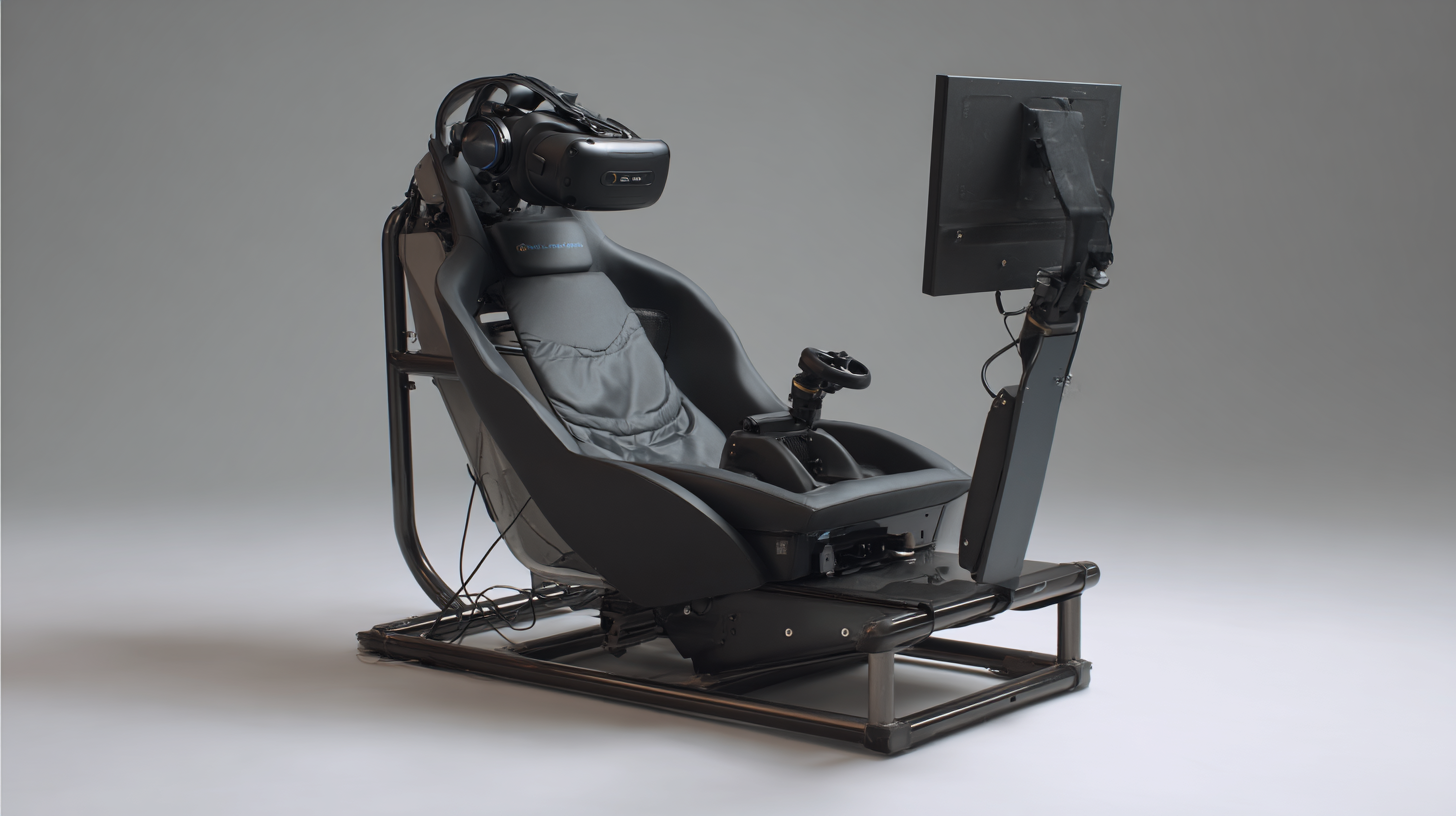 As virtual reality (VR) technology continues to advance, the demand for immersive experiences is on the rise. According to a report by Statista, the global VR market is projected to reach over $57 billion by 2027, reflecting a compound annual growth rate (CAGR) of 30.5%. One key innovation driving this growth is the introduction of the VR Chair 360, which enhances user interaction by providing a full range of motion that complements the virtual environments.
As virtual reality (VR) technology continues to advance, the demand for immersive experiences is on the rise. According to a report by Statista, the global VR market is projected to reach over $57 billion by 2027, reflecting a compound annual growth rate (CAGR) of 30.5%. One key innovation driving this growth is the introduction of the VR Chair 360, which enhances user interaction by providing a full range of motion that complements the virtual environments.
Guangzhou Longcheng Electronic Co., Ltd., VART VR, a pioneer in VR simulations, is at the forefront of this evolution. With an expansive 8000 square meter facility and a dedicated team of over 60 professionals, we specialize in delivering one-stop solutions for VR and cinema projects, ensuring our products meet the highest standards of quality and innovation.
The VR Chair 360 represents the next generation in VR immersion, offering unparalleled engagement that will transform how users experience virtual worlds.
The Evolution of VR Chairs: A 2023 Market Overview and Trends
The world of virtual reality (VR) has undergone remarkable transformations in recent years, with VR chairs emerging as a central component of this evolution.
The year 2023 has marked a significant turning point in the market, as manufacturers have begun to invest heavily in ergonomic designs and immersive technologies that elevate the user experience.
Enhanced motion capabilities and haptic feedback systems are now standard features, offering users a more engaging and lifelike interaction with virtual environments. This shift indicates a deeper understanding of consumer demands for comfort and realism during extended VR sessions.
Current trends also reflect a growing interest in customizable VR solutions. Users are looking for chairs that cater to individual preferences in terms of aesthetics, adjustability, and integration with existing VR systems.
With advancements in connectivity options, next-generation VR chairs are now compatible with various gaming platforms and virtual spaces, enabling a seamless transition into immersive experiences. As the market continues to evolve, it is clear that the future of VR chairs will prioritize not only advanced functionality but also the overall user experience, making them a pivotal part of any VR setup.
Key Features of Next Generation VR Chair 360 for Optimal Immersion
The Next Generation VR Chair 360 is designed to take virtual reality experiences to unprecedented levels of immersion. One of its key features is the advanced motion simulation technology, which responds dynamically to virtual environments, allowing users to feel every turn, tilt, and drop as if they were truly part of the action. This technology optimizes the user’s sensory experience, enhancing both realism and engagement during gameplay or exploration of virtual landscapes.
Another standout feature is the integrated haptic feedback system that provides tactile sensations corresponding to in-game events. From the rumble of distant explosions to the subtle vibrations of footsteps on different terrains, this system enriches the narrative by deepening the physical connection users have with their virtual surroundings. Additionally, the ergonomic design of the chair ensures comfort during prolonged use, which is crucial for maintaining focus and enjoyment in long VR sessions. With these features, the Next Generation VR Chair 360 redefines how users interact with virtual worlds, paving the way for more meaningful and pleasurable VR experiences.
Innovative Solutions for Enhancing VR Experience with the Next Generation VR Chair 360
| Feature | Description | Benefit |
|---|---|---|
| 360-Degree Rotation | Allows user to fully immerse in the virtual environment by rotating freely. | Enhances orientation and spatial awareness. |
| Adaptive Motion Feedback | Offers real-time feedback through vibrations and movements. | Provides a realistic feel for extraordinary immersive experiences. |
| Ergonomic Design | Designed for comfort during extended use, with adjustable components. | Reduces fatigue, allowing longer gaming sessions. |
| Immersive Sound System | Integrated surround sound system for enhanced audio experience. | Complements visuals for a more engaging environment. |
| Easy Connectivity | Compatible with multiple VR headsets and devices. | Ensures versatility with various platforms and setups. |
| Customizable Settings | Users can adjust various settings to suit personal preferences. | Personalizes the VR experience to meet individual needs. |
Comparative Analysis: VR Chair 360 vs. Traditional VR Setups
When comparing the VR Chair 360 to traditional VR setups, the differences in user experience become strikingly apparent. Traditional VR setups often rely on stationary or rudimentary seating arrangements, limiting the depth of immersion. Users are constrained to a fixed viewpoint, which can detract from the overall experience by making interactions feel less dynamic. In contrast, the VR Chair 360 offers a comprehensive, multi-directional experience that allows users to physically move and react, engaging more of their senses. This innovative chair is designed to adapt to various virtual environments, giving users the freedom to explore and interact in a fully immersive manner.
Moreover, the ergonomic design of the VR Chair 360 enhances comfort during extended sessions, addressing one of the critical drawbacks of traditional VR setups. Many users experience fatigue or discomfort when using conventional headsets paired with standard chairs. The VR Chair 360 not only provides a more comfortable seating solution but also incorporates features like motion feedback, which enriches the gaming and simulation experience. As these two approaches to virtual reality evolve, the VR Chair 360 stands out for its ability to create a more engaging and interactive environment, pushing the boundaries of what users can expect from their virtual experiences.
Comparative Analysis: VR Chair 360 vs. Traditional VR Setups
User Experience Insights: How VR Chairs Revolutionize Gameplay and Training
As the immersive technology landscape evolves, VR chairs are revolutionizing user experience in both gameplay and training environments. According to a recent report by Statista, the global virtual reality market is projected to reach $57.55 billion by 2027, highlighting a growing demand for innovative solutions that enhance user engagement. The introduction of next-generation VR chairs, equipped with 360-degree movement capabilities and haptic feedback, provides gamers and professionals with a more interactive and immersive experience, making virtual environments feel significantly more real.
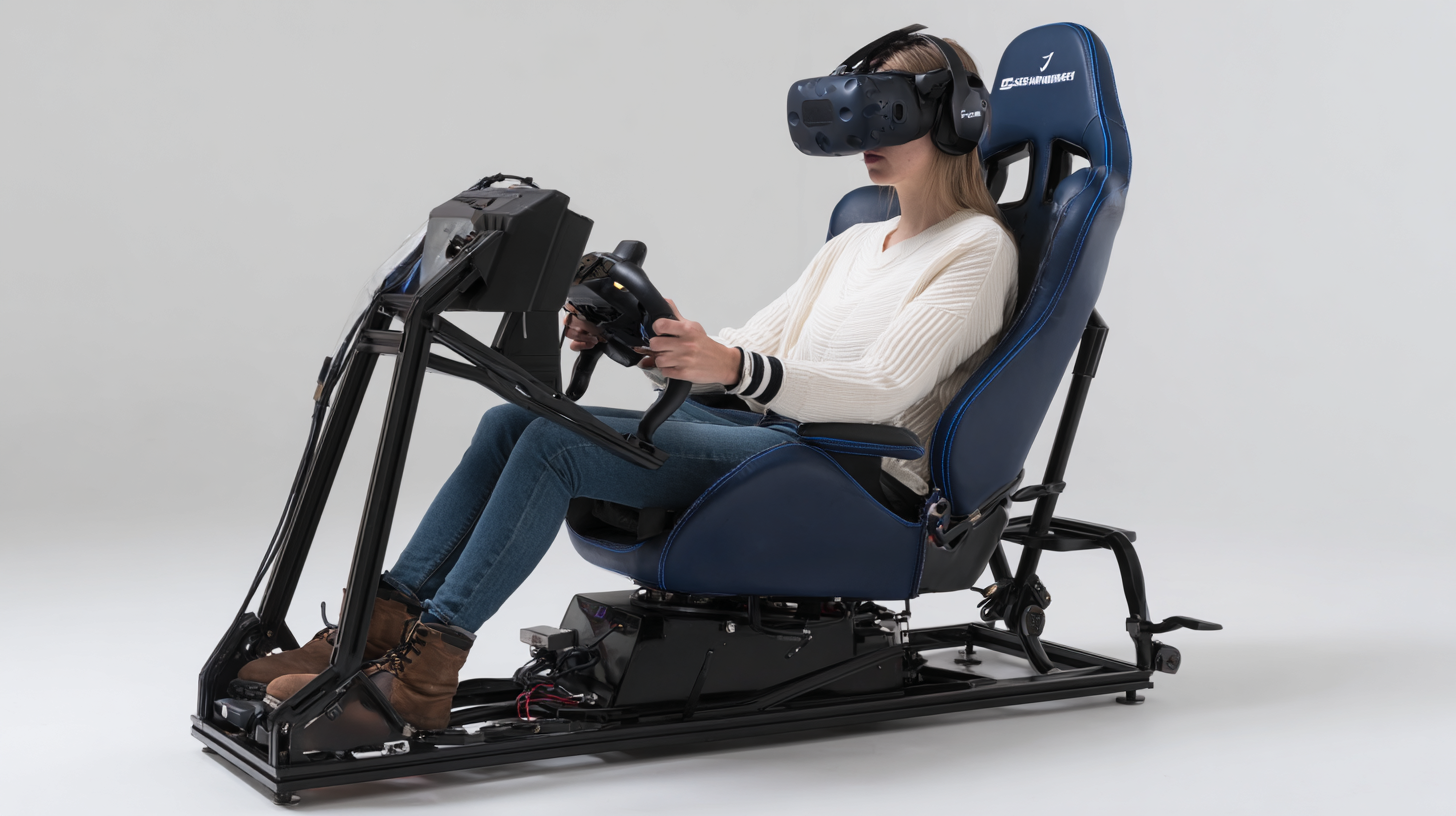
User experience insights reveal that incorporating VR chairs into training simulations greatly increases information retention and skills application. A study published in the International Journal of Human-Computer Interaction found that participants who trained in VR environments exhibited a 20% increase in task performance compared to traditional training methods. This enhancement is particularly vital in sectors such as healthcare and aviation, where realistic simulations can mean the difference between success and failure. As VR chairs continue to evolve, they promise to redefine how we engage with digital content, offering unparalleled opportunities for learning and entertainment.
Integrating Health Benefits and Ergonomics in VR Chair Design
The Next Generation VR Chair 360 represents a pivotal step forward in the integration of health benefits and ergonomics into virtual reality experiences. As more users immerse themselves in the expansive world of VR, the importance of comfortable and supportive seating becomes paramount. This innovative chair design prioritizes user health by incorporating adjustable lumbar support, adaptive seating angles, and memory foam cushioning, thereby reducing the risk of strain during extended use. By aligning the design with ergonomic principles, the VR Chair 360 transforms the way users interact with virtual environments, allowing for longer and more enjoyable sessions.
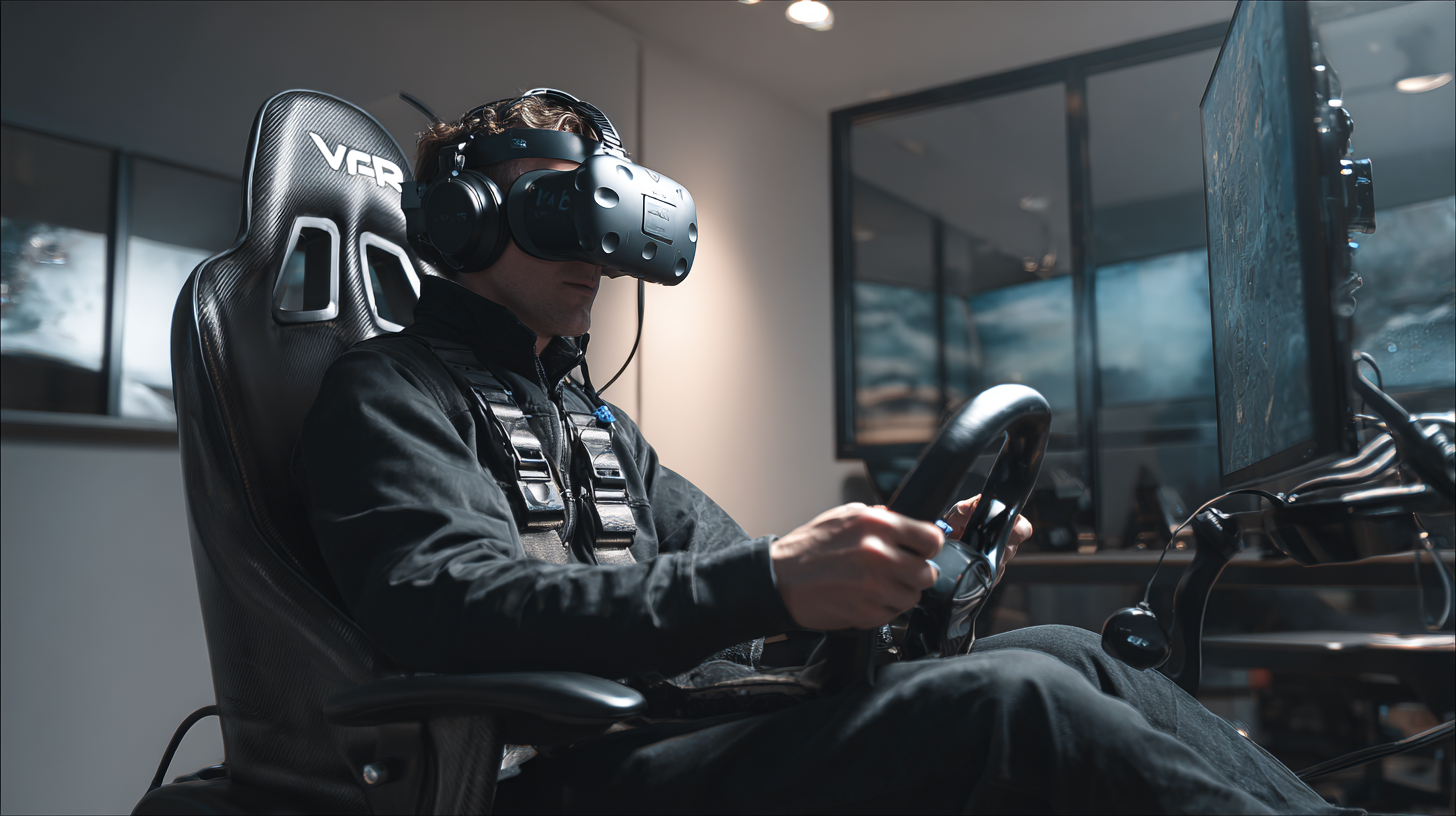
Moreover, the rise of smart technology offers exciting possibilities for enhancing the VR chair experience further. As indicated by the evolution of workspace designs for the future, the integration of IoT capabilities could allow the chair to monitor user posture and adjust automatically to prevent discomfort. As the gaming chair market continues to expand, with expected growth driven by health-focused innovations, the potential for creating a VR chair that not only entertains but also cares for the user is incredibly promising. This integration of health and ergonomics into VR chair design paves the way for a new era of seamless and supportive virtual engagements.
Future Innovations: Predicting the Next Frontier in VR Accessories and Technology
As we look towards the future of virtual reality (VR), the next generation of VR accessories, including the innovative VR Chair 360, promises to redefine our immersive experiences. With advancements in technologies such as generative AI, the potential for the VR ecosystem to evolve is substantial. This technology not only enhances user experiences but also has the means to transform how we interact with digital environments, paving the way for immersive storytelling and realistic simulations.
Tips for maximizing your VR experience with the new VR Chair 360 include optimizing the setup to ensure comfort, since an ergonomic design can greatly enhance hours spent in virtual worlds. Additionally, integrating noise-canceling audio solutions can elevate immersion, providing a rich acoustic backdrop that complements the visual elements of the VR environment.
Moreover, considering the importance of customer-centric approaches in the digital era, VR developers should focus on user feedback to iterate and improve their products. Engaging users in the design process can create tailored experiences that resonate more deeply with individual preferences, ensuring that future innovations in VR accessories continually meet the evolving demands of consumers.
FAQS
: The VR chair market is focusing on ergonomic designs, immersive technologies, enhanced motion capabilities, haptic feedback systems, and customizable solutions tailored to individual user preferences.
New VR chairs, like the Next Generation VR Chair 360, incorporate features such as adjustable lumbar support, adaptive seating angles, and memory foam cushioning to promote comfort and reduce strain during extended use.
The design of VR chairs prioritizes user health by ensuring supportive seating that aligns with ergonomic principles, allowing for longer and more enjoyable VR experiences while minimizing discomfort.
The rise of smart technology and IoT capabilities allows for features such as automatic posture monitoring and adjustments, enhancing user comfort and experience in virtual environments.
Yes, next-generation VR chairs are designed to be compatible with various gaming platforms and virtual spaces, providing a seamless transition into immersive experiences.
Haptic feedback enhances the user experience by providing tactile sensations that make interactions with virtual environments feel more engaging and lifelike.
Customizable VR solutions allow users to personalize their chairs in terms of aesthetics, adjustability, and compatibility with existing VR systems.
The future of VR chairs is expected to focus on advanced functionality, health integration, and enhanced user experiences, with continued innovations in ergonomics and technology.
It represents a significant advancement in integrating health benefits and ergonomic principles into VR design, facilitating longer and more comfortable immersive experiences for users.
The market for gaming chairs is expanding with health-focused innovations, suggesting a promising future for VR chairs that prioritize user care alongside entertainment.
Conclusion
The blog "Innovative Solutions for Enhancing VR Experience with the Next Generation VR Chair 360" explores the transformative impact of advanced VR chairs on immersive experiences. Highlighting the 2023 market trends, the evolution of VR chairs has led to remarkable innovations like the VR Chair 360, which offers key features such as enhanced motion simulation and ergonomic design tailored for prolonged use. This chair not only elevates gameplay but also plays a crucial role in training simulations, providing valuable insights into user experience.
Additionally, the blog discusses the comparative advantages of the VR Chair 360 against traditional VR setups, emphasizing its health benefits and focus on ergonomics. As the VR landscape continues to evolve, future innovations promise to further integrate technology and enhance user engagement, positioning VR Chair 360 at the forefront of this exciting frontier. Companies like Guangzhou Longcheng Electronic Co., Ltd. are leading the way in developing cutting-edge VR solutions, ensuring that users can enjoy rich and immersive virtual experiences.
Related Posts
-
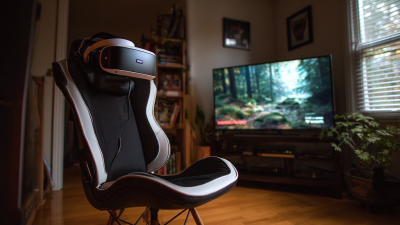
7 Ultimate Tips for Choosing the Best Gaming Chair for VR Experience
-
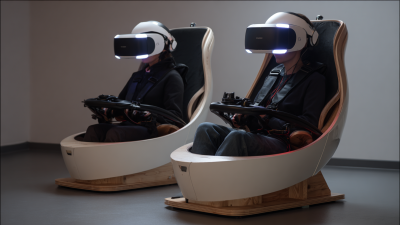
The Future of Immersive Experiences with VR Chairs
-
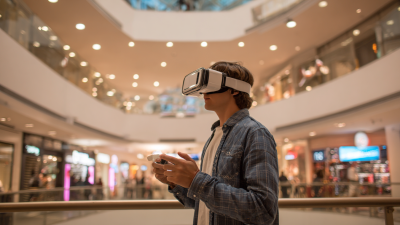
Exploring Challenges Faced by Global Buyers in Integrating Vr Mall Cinema Solutions
-
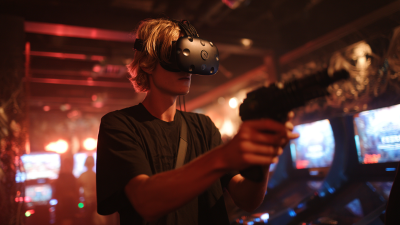
What Makes VR Arcades a Revolutionary Experience in Entertainment
-

From China to the World: Discovering Unmatched Quality in Amusement Park Rides for Sale
-

Exploring Innovative Alternatives to Traditional Entertainment with VR Parks

